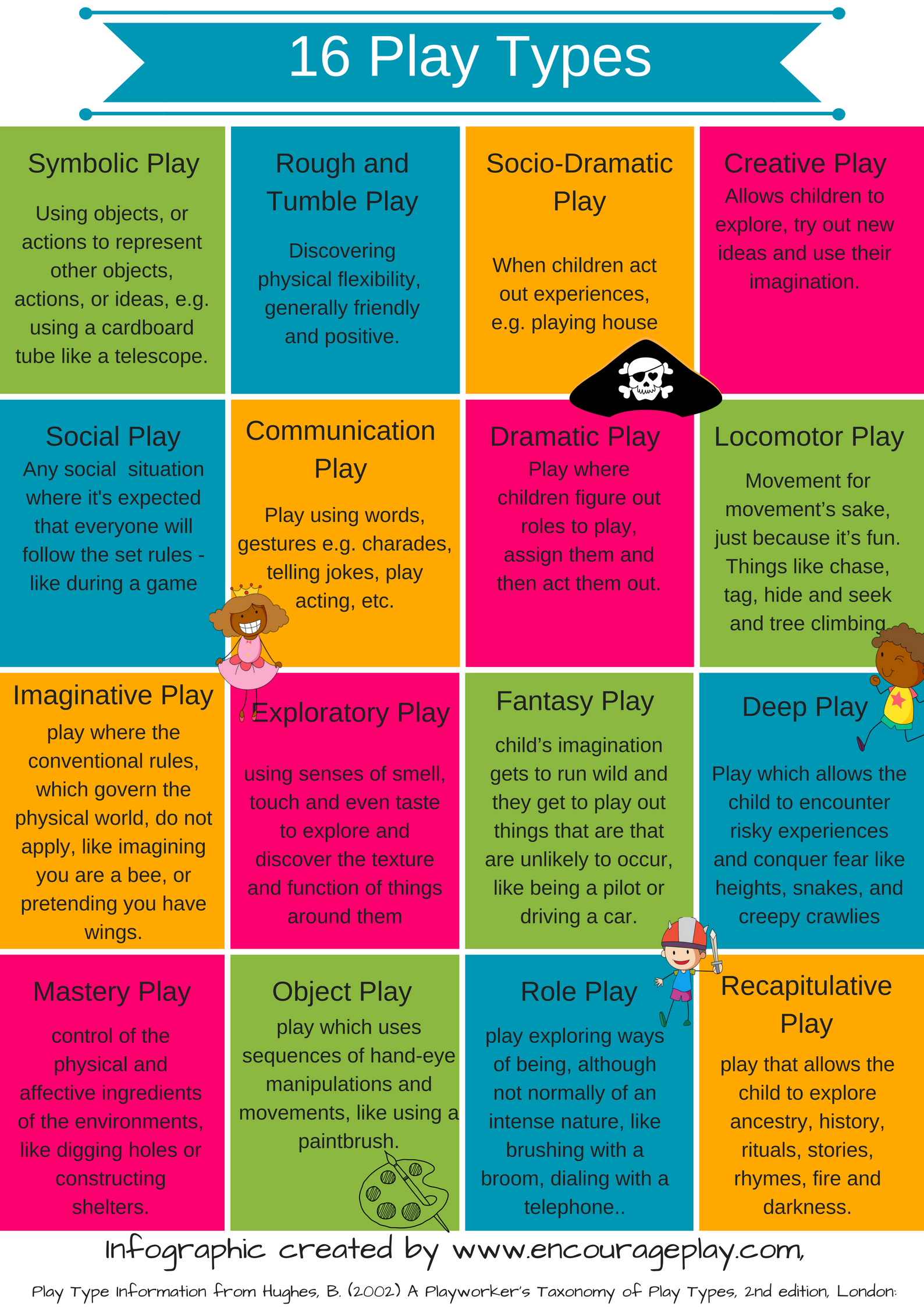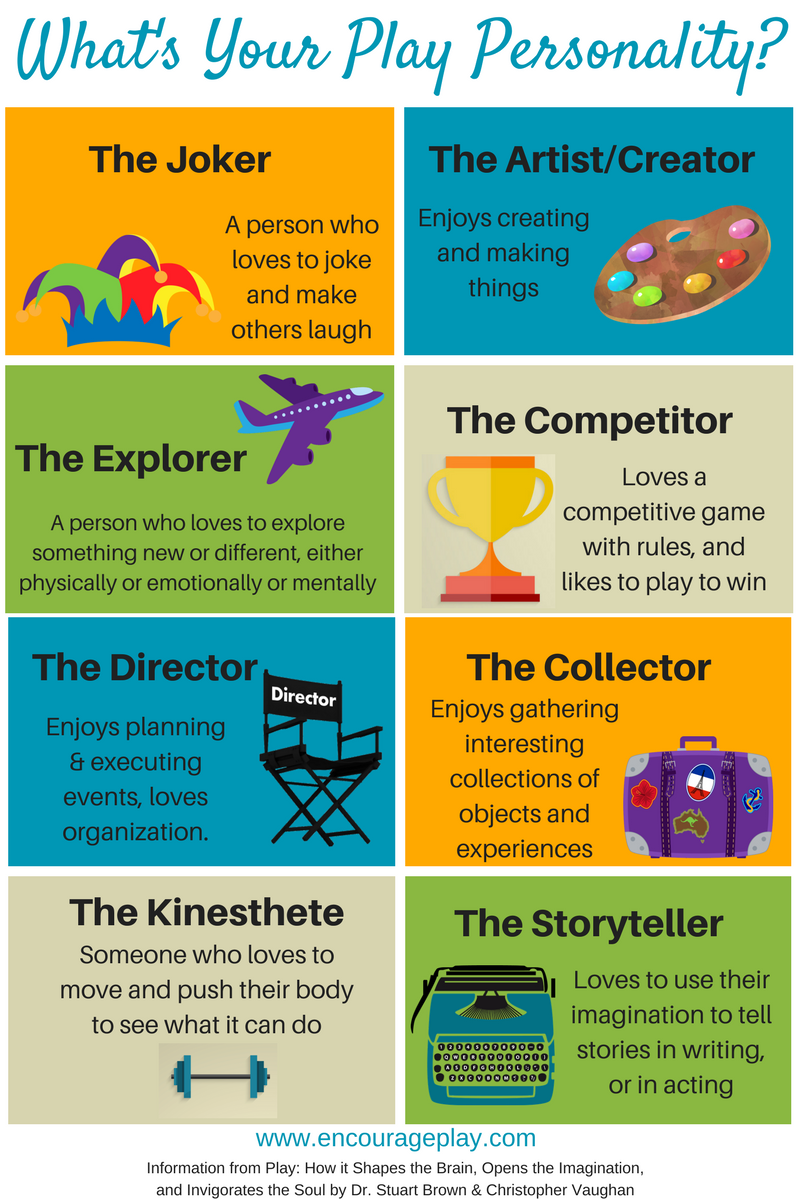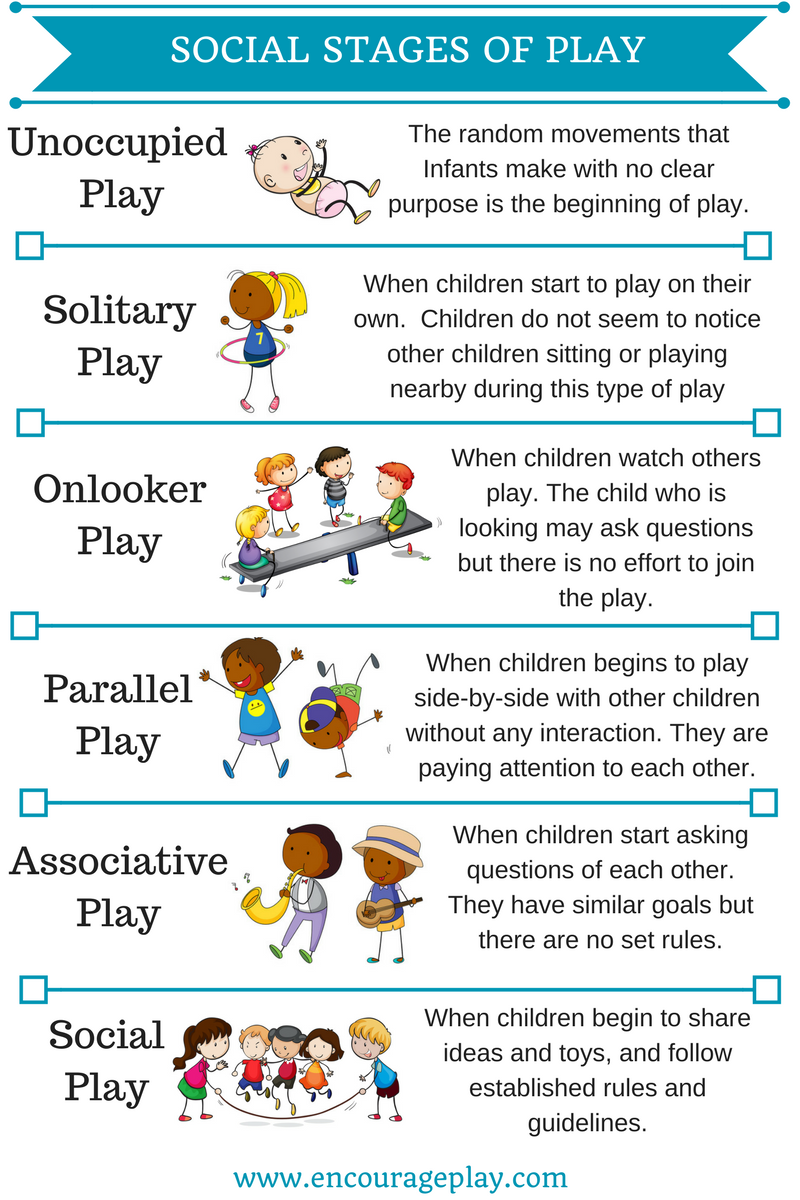What is play?
When you think of play what comes to mind? Play is different for everyone. For some people, creating art is play. For others, it’s climbing rocks. For others still, it’s writing. There are many different ways to play; it’s not just blocks and LEGOs.
Bob Hughes has done some great work about 16 different play types that he’s identified. Take a look at what he’s found.
One playtime can encompass multiple types of play. Playing pirates can include rough and tumble play, symbolic play, dramatic play, communication play, social play, fantasy play and imaginative play!
Stuart Brown has identified 8 play "personalities". As I read these various types, I was able to see myself and my own family in these play personalities! Also, you’re not limited to only having one.
What’s your play personality? I fall into the artist/creator and director categories. My husband is a joker and an explorer. My son is a kinesthete and a joker. And my daughter is a collector & director.
The Importance of Play
“The ability to play is critical not only to being happy, but also to sustaining social relationships and being a creative, innovative person ”
Play is essential for children. More and more research confirms the importance of play and why it should be an integral part of a child’s life. Why is play so important and what does it do for children?
Humans are biologically wired to play. Play serves as a way for people to practice skills they will need in the future. According to The Importance of Play in Promoting Healthy Child Development and Maintaining Strong Parent-Child Bonds (2007), free play allows children to practice decision-making skills, learn to work in groups, share, resolve conflicts and advocate for themselves. It also allows them to discover what they enjoy at their own pace.
Free play “is critical for becoming socially adept, coping with stress and building cognitive skills such as problem solving” (The Serious Need for Play, 2009).
Play is so important that it’s even part of the United Nations Convention on the Rights of the Child. Article 31 states that children have the right “to engage in play and recreational activities”
How does play impact social skills?
Play is how children learn, including learning social skills. Learning how to interact with others, compromise, and work together all happen when playing.
As children develop and grow, so does their way of playing. Let’s take a brief look at how play develops and changes over time for children. Margaret Parten outlined the six stages of social play and it starts at birth (An analysis of social participation, leadership, and other factors in preschool play groups, 1933).
1. Unoccupied play
Did you know play starts at birth? Infants engage in random movements with seemingly no apparent purpose, but this is the beginning of play.
2. Solitary play
This is when children start to play on their own. Solitary play begins in infancy and is common in toddlers. However, all age groups can (and should!) have some time for independent play. When engaged in solitary play, children do not seem to notice other kids sitting or playing nearby during this type of play.
3. Onlooker play
The next stage of play is when children watch others play. Onlooker play happens most frequently during the toddler years but can occur at any age. The onlooker may ask questions of other children, but there is no effort to join the play. This may happen when a child is shy, or unsure of the rules, or is hesitant to join the game.
4. Parallel play
Parallel play starts when children begin to play side-by-side with other children without any interaction. Parallel play is usually found with toddlers, although it happens in any age group.
Even though it seems like they are not interacting, they are paying attention to each other. This is the beginning of wanting to be with other children their age. This stage lays the groundwork for the later stages of play.
5. Associative play
At some point, a child will start interacting more with the other child they are playing with; this is the next stage of play called associative play. At around three to four years of age, they become more interested in other children than the toys. They start asking questions and talking about the toys and what they are making. This is the beginning of really understanding how to get along with others. During associative play, children within the group have similar goals (for example: building a creation out of blocks). However, they do not set rules and there is no formal organization.
6. Social play
Children will begin to socialize starting around three or four. They begin to share ideas and toys and follow established rules and guidelines. They play shop and figure out who will play what role. They can work together to build something or maybe play a simple game together. This is really where a child learns and practices social skills, like cooperating, being flexible, taking turns, and solving problems.
“play seems to dynamically stabilize body and social development in kids as well as sustain these qualities in adults. ”
What if my kid is struggling?
Some kids struggle with learning how to play with their peers. Play isn’t always easy for everyone. The goal would always be to have children be able to play and interact without adult support. But for some, that’s not realistic. For those kids who struggle, they’ll need additional adult scaffolding until they can play on their own.
What can you do?
“Social competence simply cannot be taught in a structured, artificial classroom setting.”
You can create genuine teachable moments where a child can learn both the overt and the hidden rules of interacting with others. There are a few ways to this:
Host structured, time-limited playdate with a peer one on one
Use teachable moments at the playground, or birthday parties, or during structured activities or sports.
Family activities like game night, family book clubs, doing random acts of kindness, etc. provide an experience to connect and a way for families to reinforce positive behaviors, and offers opportunities for teachable moments.
During a social group that involves real-life experiential learning of social skills
Looking for some ideas? Check our the Encourage Play at Home Page for some different ways to play!
Read More about Play...




